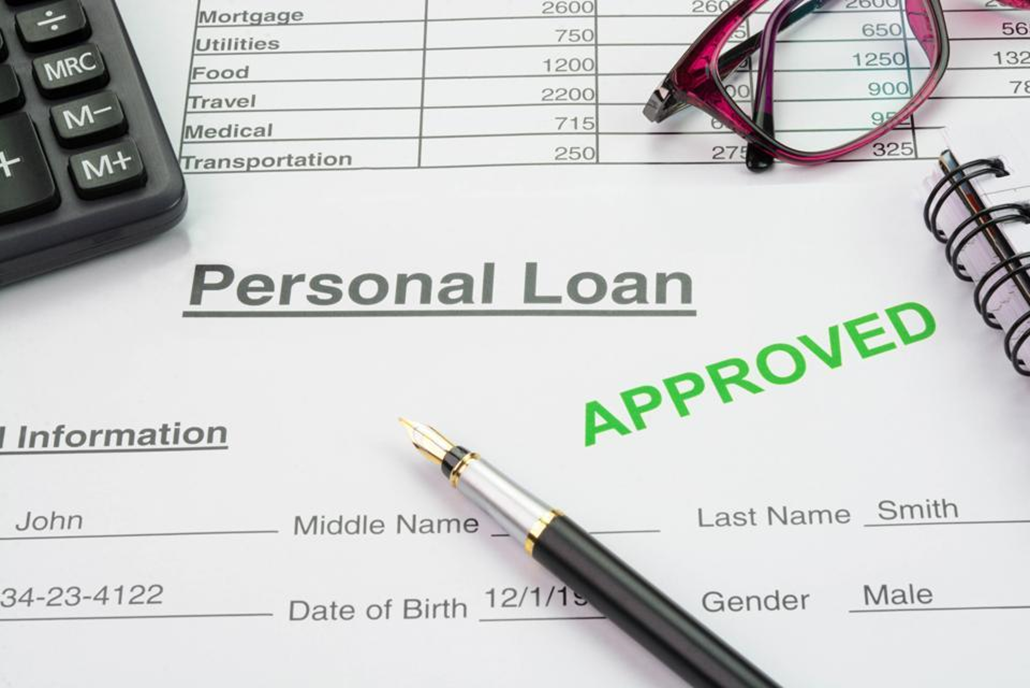
How to Build or Rebuild Your Credit with a Loan in Ontario
 By Payday Loans Co., BC Canada – Having good credit is essential for various aspects of life, from securing loans and credit cards to renting an apartment or even getting a job. If you find yourself in Canada with a less than stellar credit score or no credit history at all, don’t worry – it’s never too late to start building or rebuilding your credit. This article from Payday Loans Co., Alberta Canada will guide you through the process of using a loan to establish or improve your credit score in Canada. By understanding the importance of credit, assessing your current situation, exploring loan options, and implementing responsible credit management strategies, you’ll be well on your way to achieving a solid credit foundation and the financial opportunities it brings.
By Payday Loans Co., BC Canada – Having good credit is essential for various aspects of life, from securing loans and credit cards to renting an apartment or even getting a job. If you find yourself in Canada with a less than stellar credit score or no credit history at all, don’t worry – it’s never too late to start building or rebuilding your credit. This article from Payday Loans Co., Alberta Canada will guide you through the process of using a loan to establish or improve your credit score in Canada. By understanding the importance of credit, assessing your current situation, exploring loan options, and implementing responsible credit management strategies, you’ll be well on your way to achieving a solid credit foundation and the financial opportunities it brings.
Understanding the Basics of Credit
When it comes to building or rebuilding credit in Ontario, it’s essential to understand the basics. Credit is essentially a measure of your trustworthiness as a borrower. It allows lenders like Payday Loans Co., Ontario Canada to determine whether they should lend you money, and at what interest rate. So, if credit is like a report card, you want to make sure to get an A+.
The Importance of a Good Credit Score
Having a good credit score is like having a secret weapon in your financial arsenal. It opens up doors to better interest rates on loans, credit cards with attractive benefits, and even potential landlords who are more likely to approve your rental application. In Ontario, your credit score ranges from 300 to 900, with a higher score indicating better creditworthiness.
Understanding the Importance of a Good Credit Score
How Credit Scores are Calculated
Credit scores are calculated using a combination of factors, including your payment history, credit utilization, length of credit history, types of credit used, and recent credit applications. It’s like a complicated recipe with different ingredients, and each factor has a certain weight in determining your final score.
The Impact of a Good Credit Score
A good credit score can have a profound impact on your financial life. It can mean the difference between getting approved for a mortgage or being stuck in your parents’ basement for eternity. It can also save you thousands of dollars in interest over the life of a loan. So, it’s definitely worth putting some effort into building and maintaining a healthy credit score.
Common Misconceptions about Credit Scores
There are quite a few myths and misconceptions surrounding credit scores. Some people believe that checking their credit score will lower it or that paying off debt will instantly boost their score overnight. While these might make for great superhero movie plot twists, they are not rooted in reality. Understanding the truth behind these misconceptions can help you make informed decisions when it comes to managing your credit.
Assessing Your Current Credit Situation
Obtaining Your Credit Report
To assess your current credit situation, you’ll need to get your hands on your credit report. In Ontario, you can request a free copy of your credit report from two major credit bureaus, Equifax and TransUnion. It’s like digging into your financial past to see what’s working for you and what needs improvement.
Analyzing Your Credit History
Once you have your credit report, it’s time to analyze it like a detective. Look for any errors, such as incorrect personal information or accounts that don’t belong to you. These errors can negatively impact your credit score, so it’s crucial to address them promptly.
Identifying Areas for Improvement
While reviewing your credit history, identify areas where you can improve. Have you missed any payments? Are you utilizing too much of your available credit? By pinpointing these areas, you can start building a plan to boost your credit score and improve your overall financial health.
Exploring Loan Options for Building or Rebuilding Credit
Secured Loans
Secured loans can be a useful tool for building or rebuilding credit. By using collateral, such as a car or savings account, you can secure a loan and show lenders that you’re capable of repaying debt responsibly. Just be sure to make your payments on time to avoid any negative impact on your credit.
Unsecured Loans
Unsecured loans, like personal loans or credit builder loans, can also help build credit. These loans don’t require collateral but may come with higher interest rates. Make sure to explore different lenders and loan options to find the best terms and rates that suit your needs.
Alternative Credit Building Options
If traditional loans aren’t accessible to you, don’t fret! There are alternative credit building options available. For example, you can consider becoming an authorized user on someone else’s credit card, getting a secured credit card, or even taking out a small loan from a credit union or community organization. These unconventional methods can still help you build credit and take you one step closer to financial success.
Remember, building or rebuilding credit takes time and effort. It won’t happen overnight, but with the right strategies and a little patience, you can turn your credit report from a horror story into a fairy tale ending. So, let’s get started on the path to credit excellence!
Secured vs. Unsecured Loans: Choosing the Right Option
Understanding Secured Loans and Their Benefits
Secured loans are like the superheroes of the loan world, swooping in to save the day when your credit is less than stellar. These loans require collateral, such as your car or home, which reduces the risk for the lender. Because of this added security, secured loans usually have lower interest rates and more flexible repayment terms. They can be a great option if you have valuable assets to put up as collateral.
Exploring Unsecured Loans and Their Pros/Cons
Unsecured loans are more like the sidekicks of the loan world. They don’t require you to put up any collateral, which means you don’t risk losing your valuable assets if you can’t repay the loan. However, because they are riskier for lenders, unsecured loans often come with higher interest rates and stricter eligibility requirements. If you don’t have any valuable assets to use as collateral, unsecured loans can still provide the funds you need, but be prepared for higher costs.
Factors to Consider when Choosing between Secured and Unsecured Loans
Choosing between a secured and unsecured loan is all about weighing the risks and rewards. Consider factors such as your credit history, the amount of money you need, and the assets you have available for collateral. If you have good credit and valuable assets, a secured loan may offer lower rates and better terms. On the other hand, if you don’t have any assets to use as collateral or simply prefer not to risk them, an unsecured loan might be the way to go. It’s all about finding the option that suits your needs and financial situation.
Applying for a Loan: Steps to Increase Approval Chances
Checking Eligibility Requirements
Before applying for a loan, make sure you meet the lender’s eligibility requirements. These can include factors such as a minimum credit score, a steady income, and a certain age. By checking these requirements beforehand, you can save yourself time and frustration by only applying for loans you are likely to be approved for.
Gathering Necessary Documentation
Be prepared to provide the lender with the necessary documentation when applying for a loan. This can include proof of income, bank statements, identification, and any other documents they may request. Having these documents ready in advance will streamline the application process and increase your chances of approval.
Improving Your Credit Profile
If your credit score is less than stellar, take steps to improve it before applying for a loan. Paying your bills on time, reducing your credit card balances, and disputing any errors on your credit report can all help boost your credit score. A better credit profile will increase your chances of loan approval and may even result in better loan terms and interest rates.
Managing Your Loan Responsibly to Improve Credit Score
Creating a Budget and Payment Plan
Once you’ve received your loan, it’s essential to create a budget and payment plan to ensure timely repayments. Calculate how much you need to allocate each month towards your loan repayment and adjust your budget accordingly. This will help you stay on top of your payments and avoid late fees or penalties.
Automatic Payments and Alerts
To further ensure on-time payments, consider setting up automatic payments for your loan. This way, the payment is deducted from your bank account automatically, saving you the hassle of remembering due dates. Additionally, set up alerts or reminders to notify you when payments are due, giving you an extra nudge to stay on track.
Monitoring Your Credit Progress
While managing your loan responsibly, keep an eye on your credit progress. Monitor your credit report regularly to check for any errors or discrepancies and track your credit score. This will allow you to spot any issues early on and take steps to address them, ultimately improving your credit score over time.
Additional Strategies and Resources for Credit Building in Ontario
Using Credit Building Tools and Services
In addition to loans, there are various credit-building tools and services available. Secured credit cards, for example, can help you establish or rebuild your credit by requiring a cash deposit as collateral. Some financial institutions also offer credit-building programs designed to help individuals improve their credit scores. Exploring these options can provide you with additional avenues for building credit.
Seeking Professional Credit Counseling
If you’re feeling overwhelmed or unsure about how to improve your credit, consider seeking professional credit counseling. These experts can assess your financial situation, provide personalized advice, and guide you towards effective credit-building strategies. They can also help you create a realistic plan to manage your debts and reach your credit goals.
Utilizing Government Programs and Resources
Lastly, don’t overlook the resources and programs offered by the government. In Ontario, for example, the Ministry of Finance provides information on credit and debt management, as well as access to free credit reports. Take advantage of these resources to educate yourself on credit-building techniques and gain a better understanding of your financial standing.
Remember, building or rebuilding your credit takes time and effort. But with the right knowledge, strategies, and a dose of determination, you can pave a path towards a healthier credit profile and financial future.
Building or rebuilding your credit in Ontario may seem like a daunting task, but with the right knowledge and strategies, it is entirely achievable. By taking the necessary steps to understand your credit, exploring loan options, and managing your finances responsibly, you can gradually improve your credit score and open doors to better financial opportunities. Remember to stay patient and consistent in your efforts, as building credit is a gradual process. With determination and the information provided in this article, you can set yourself on a path towards a stronger credit profile and a brighter financial future.
Frequently Asked Questions
Can I build or rebuild my credit in Ontario if I have a low credit score?
Absolutely! While having a low credit score can make it more challenging, it is still possible to build or rebuild your credit in Ontario. By utilizing strategies such as obtaining a secured loan, making timely payments, and practicing responsible credit management, you can gradually improve your credit score over time.
Are there any alternatives to loans for building credit in Ontario?
Yes, there are alternative options available for building credit in Ontario. Some alternatives include applying for a credit card with a low credit limit, becoming an authorized user on someone else’s credit card, or utilizing credit-building tools and services specifically designed to help individuals establish or rebuild credit.
How long does it take to see improvements in my credit score?
The time it takes to see improvements in your credit score can vary depending on various factors, including your current credit history and financial habits. Generally, it may take several months or even years of consistent and responsible credit management to witness significant improvements. Patience and perseverance are key throughout the process.
What resources are available in Ontario to assist with credit building?
Ontario provides various resources to assist with credit building. You can seek guidance from non-profit credit counseling agencies, which offer financial education and personalized advice. Additionally, the government offers programs and resources to help individuals understand their credit and improve their financial literacy.



